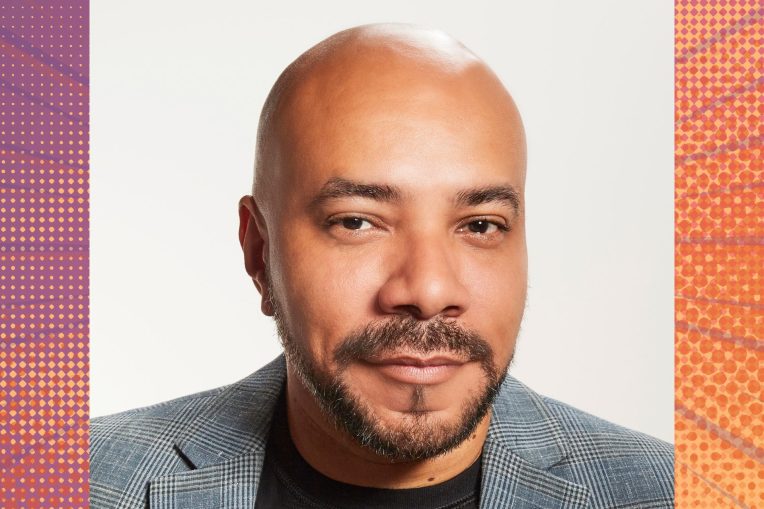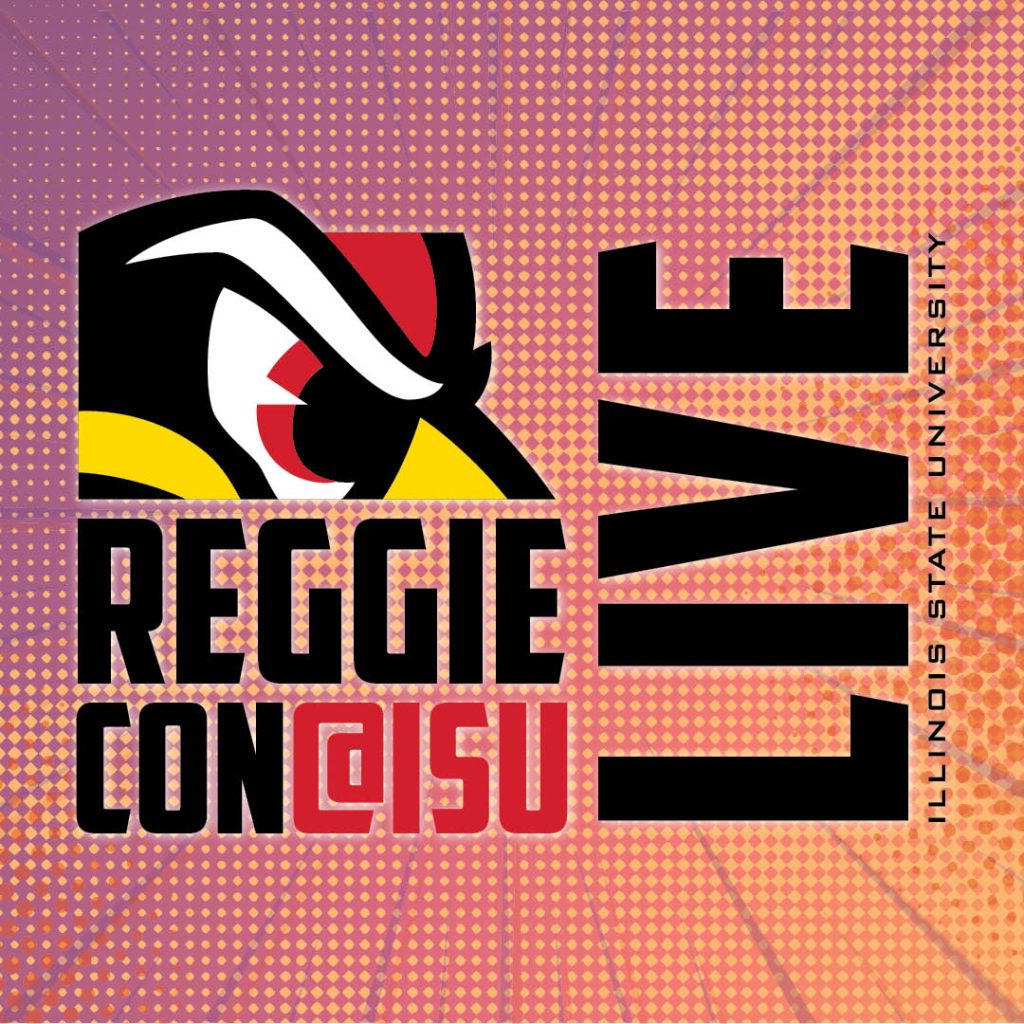Like Spider-Man, renowned comic book author and artist John Jennings believes, “With great power comes great responsibility.”
But instead of leaping across New York City to help others in peril, Jennings harnesses the strength of storytelling to amplify the voices of marginalized people. Creating comics and graphic novels that engage readers in the ongoing fight for social justice is his superpower.
Jennings, an Eisner-winning (the Oscars of comics) and New York Times bestselling artist, is among the 10 creators and scholars from around the world scheduled to present at ReggieCon Live! 2024, hosted on Illinois State University’s campus April 27-30.
Themed “Ruins, Reflections, Creations, and Dreams,” ReggieCon Live! aims to provide a forum for diverse, creative interactions geared toward addressing ambiguous, challenging spaces. This year, creators, scholars, and attendees will discuss how our society will be remembered a thousand years from now and what that says about our current priorities.
ReggieCon Live! organizer Dr. J. Scott Jordan, chair of Illinois State’s Department of Psychology, first met Jennings when the two were paired on a Comic-Con convention panel focused on a similar topic: dystopia.
“I absolutely love John’s creative, unconstrained style. It’s unique to him,” Jordan said. “He is definitely a social justice advocate, and that comes through in his work.”
An avid reader as a child, Jennings was introduced to comic books early on by his mother.
“Little did she know she was starting an obsession that became a profession,” Jennings said. “She encouraged me to read a lot, and in doing so, I picked up the habit of wondering what all the stories meant and analyzing all the images.”
Jennings particularly loved superhero comics, including Spider-Man and Daredevil.
“I really related to Matt Murdock, the main character in Daredevil,” Jennings said. “I think I saw a lot of myself in him as far as him being a poor kid who was getting picked on in school but also had talents that he could use to get out of the spaces that he was in.”
In college, Jennings studied commercial art and earned master’s degrees in art education and graphic design. Over the past 30 years, he has authored, illustrated, or edited nearly 20 pieces, including the Eisner Award-winning collection The Blacker the Ink: Constructions of the Black Identity in Comics and Sequential Art.

Most notable on his list of publications are the graphic novel adaptations of Octavia Butler’s Kindred and Parable of the Sower, which Jennings co-authored and illustrated with Damian Duffy.
“Damian and I were always Octavia Butler fans. We’re talking about one of the greatest American writers to live. So, how do you actually take those perfect words that she’s chosen and edit them and actually try to make them graphic?” Jennings said. “Damian did a great job taking the work and changing it into a comic script.”
Jennings, who illustrated both graphic novel adaptations, won a 2018 Eisner Award for his work with Duffy on Kindred.
“It changed my life,” Jennings said. “Through that association, now I’ve become part of her legacy.”
Building on that success, Jennings launched MEGASCOPE, a line of curated graphic novels dedicated to showcasing speculative and nonfiction works by and about people of color, with a focus on science fiction, fantasy, horror, history, and stories of magical realism.
“If you look at the history of science fiction and Western culture, you really don’t see a lot of Black people in early sci-fi, particularly futuristic depictions,” Jennings said. “What does that say about where we as Black people are in the future? There’s something to be said to read something like that and not see yourself as having a future.”
Jennings, who is a professor of media and cultural studies at the University of California at Riverside, said representation in speculative fiction, such as science fiction or fantasy, is important.
“Speculative narratives not only recenter our history, but also makes us think about what the future holds for Black folks in a space where, honestly, we weren’t really supposed to exist—our ancestors weren’t supposed to be free. We weren’t supposed to have dreams or any type of agency at first,” Jennings said. “So now, we’re kind of making up the rules as we go along trying to figure out, ‘What’s the next step?’ That’s exciting.”
Jennings will address this and other topics during a presentation at ReggieCon Live! on Sunday, April 28, in the Bone Student Center Founders Suite. The one-day conference and workshop titled “At the Ruins of Contemporary Culture: What Will Tomorrow’s Minds Write about Today’s Selves?” runs from 10 a.m.-6 p.m. and is free and open to the public. Jennings’ talk, “Becoming the Data Thief: Notes on a Black Speculative Mythopoetic,” is scheduled to begin at 10:45 a.m. during Sunday’s conference.
Jennings will give another presentation on Monday, April 29, beginning at 11:30 a.m. in University Galleries, which will also be free and open to the public, and he will host a workshop with students.
“We’ll be talking about storytelling as liberation practice—how we actually galvanize ourselves through storytelling,” Jennings said.
ReggieCon Live! kicks off Saturday, April 27, with the Student Creativity Showcase in the Bone Student Center.


